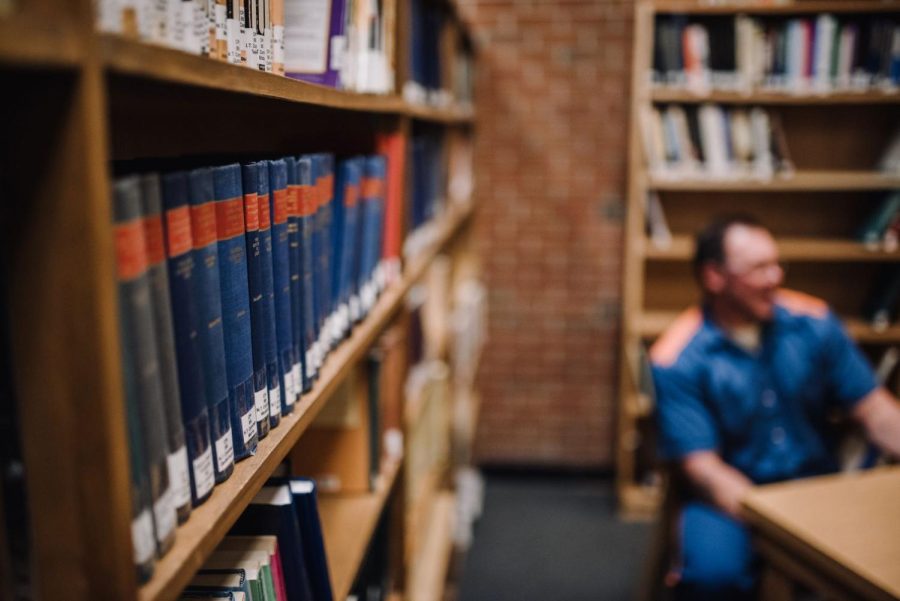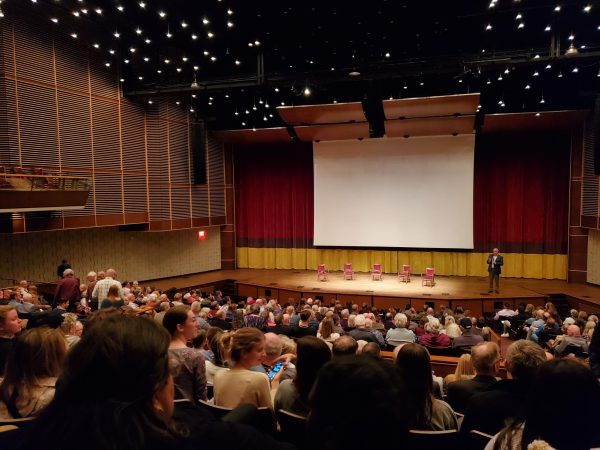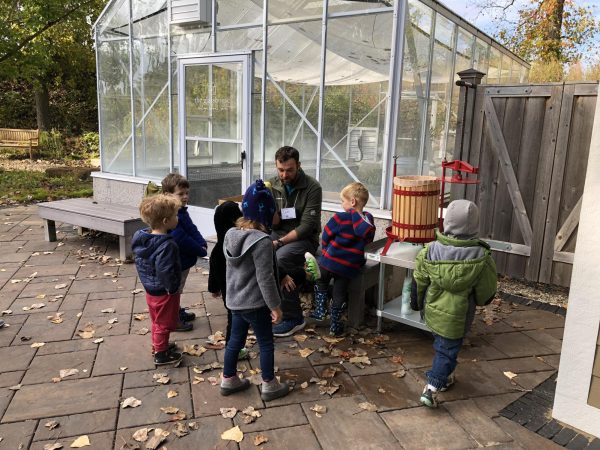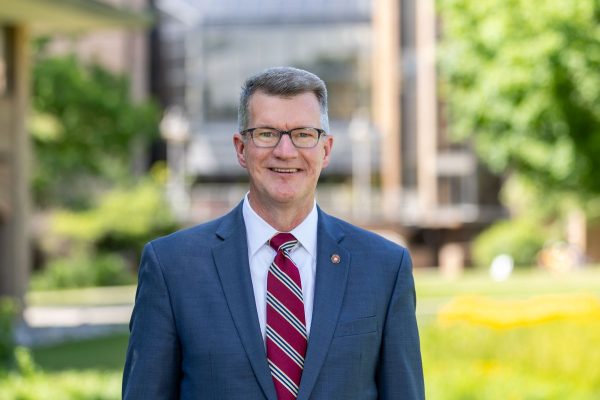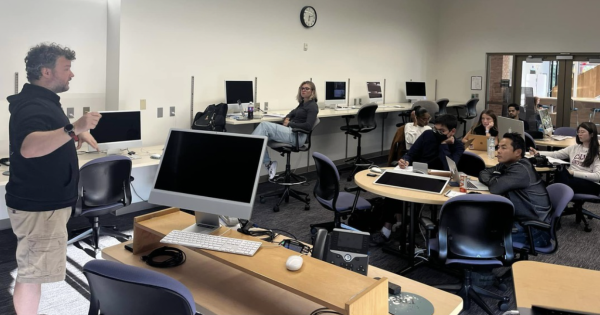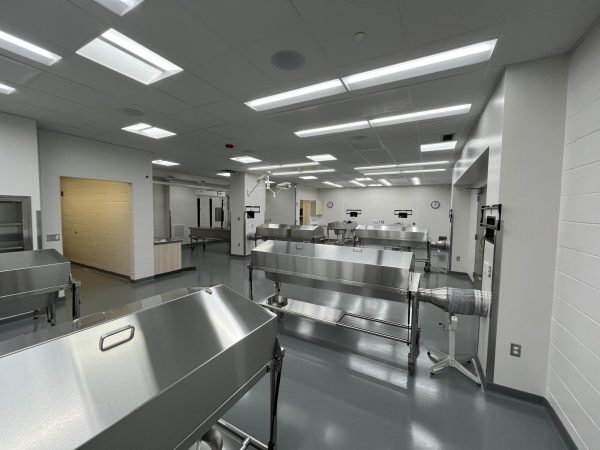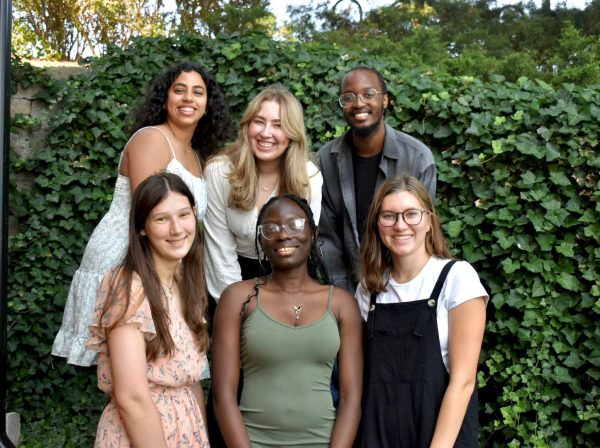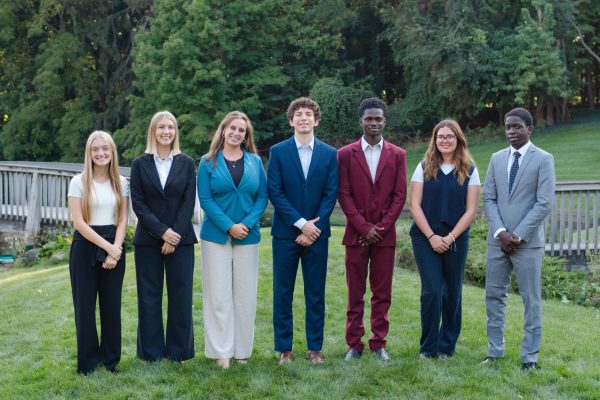CPI graduates work to improve conditions in correctional facilities
Federal funding for educational opportunities for incarcerated people has enabled Calvin’s Prison Initiative to grow, and CPI staff hope further increases may be on their way. As CPI and similar programs grow, CPI graduates are taking on leadership roles within both Handlon and other correctional facilities in Michigan.
The CPI operates at the Handlon Correctional Facility in Ionia, Michigan, about 40 minutes east of the Knollcrest campus. When the CPI started in 2015, a 1994 federal law prevented incarcerated people from receiving Pell Grants, a federal subsidy which helps people with low incomes afford post-secondary education. The 2014 Second Chance Pell Pilot allowed prisoners to receive funds at select programs, but those programs were rare.
“A lot of prison educational programs left the prison context because prisoners don’t have the resources to pay tuition,” said Kary Bosma, CPI director of operations.
While the Calvin Theological Seminary pays tuition for the CPI students, limited funds have meant larger class sizes — a source of frustration for professors. Students often come to class well-prepared for discussion, but have few opportunities to participate due to class size.
“I’m almost tempted to sit down and just, almost like a book group, start talking it out with them,” said Elisha Marr, an associate professor of sociology and gender studies who has taught in the program since 2016. “The reason why I don’t is when you have 40 students, you can’t make eye contact with them when you’re sitting down.”
Since 2014, Pell Grant eligibility for the incarcerated has expanded. As a result, prison educational programs, including Calvin’s, are growing. As programs multiply, former CPI students have taken on leadership roles in other programs, serving as tutors and peer mentors not only at Handlon but also at other facilities, such as the Muskegon Correctional Facility and the Parnall Correctional Facility.
Bosma hopes for increased federal support for prison educational programs. On Aug. 30, James Kavall, a Department of Education undersecretary, who oversees prison educational programs and financial aid, and two assistant secretaries visited the Handlon Campus. It was Kavall’s first time in a prison.
“I think they came away with excitement and imagination for what other prison education programs could look like,” said Bosma, who facilitated the visit.
Peer mentorship program
CPI graduates have put their Calvin degrees to work, taking on mentorings roles within correctional facilities.
Rick Reamsma, who graduated with a degree in faith and ministry leadership in 2021, works as a peer mentor at Handlon, helping prisoners with mental illness or developmental disabilities navigate prison life. He tutors residents, encourages them to practice good hygiene and mediates conflicts between residents and staff.
Access to resources like the internet is limited in the facility. “We don’t have computers to look up stuff that can help us as mentors to navigate some of the tougher situations we run into,” said Reamsma. Incarcerated people at Handlon also don’t have access to educational games or TV programs, Reamsma said.
The Handlon Correctional Facility houses between 1,000 and 1,100 prisoners, many of whom have serious mental health or developmental issues.
“It’s a population so comprehensive that it overwhelms the ability of social work and psych staff to meet the need,” said Nick Nichols, the CPI program coordinator.
Prior to the introduction of the peer mentorship program, options for residents with mental health or developmental issues were even more limited. Because they were vulnerable to bullying by other inmates, staff tried to keep them separate from the rest of the prison population. However, mistreatment by prison staff was also an issue.
“Some of the staff … also see them as less-than, and so they … bully them around a bit themselves,” said Reamsma, noting a specific staff member who yells at residents and calls them slurs.
Reamsma said the peer mentorship program has given residents with mental health and developmental issues “an opportunity to be around someone who’s not going to bully them, who’s not going to treat them as less-than.”
The program also brings fulfillment for the mentor, according to Reamsma.
“Obviously, I say, I would like to be free — I’m tired, I’m absolutely tired of prison … but I finish with, ‘God, if this is where you have me, then use me to the fullest of my potential,’” said Reamsma.



